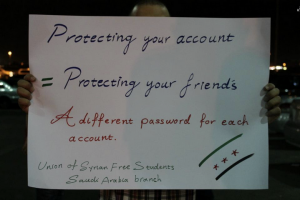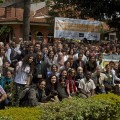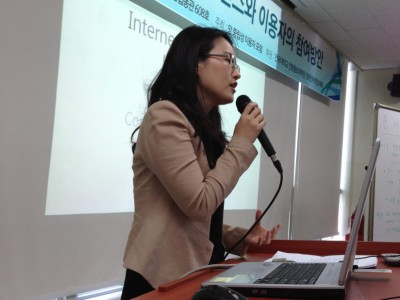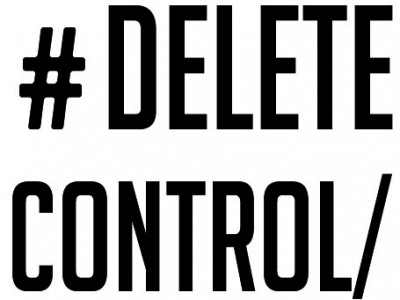Stories about Advocacy from January, 2013
International Privacy Day: Anti-Surveillance Success Stories
January 28 marked International Privacy Day. Different countries celebrated this day calling attention to their own events and campaigns. This year, EFF is honoring the day by sharing some advocacy strategies utilized by human rights advocates and activists from Argentina, the UK, Canada, and the United States, that have helped to defeat overreaching surveillance proposals that threaten civil liberties.
Surveillance Camp I: Mapping Strategies to Counteract Online Spying in Latin America
This is the first in a series of posts mapping state surveillance challenges in Latin America and lessons learned at EFF's State Surveillance Camp in Rio de Janeiro, Brasil.
Understanding Free and Open Source Software
We received an email from Richard M. Stallman (RMS), after publishing an article about the Egyptian demonstration calling for the government to adopt Free Software. Tarek Amr digs deeper into open source software and arguments in its favor in this first post of a two-part series.
Zambia: Foreign Minister's Phone Tapped
Zambia's Foreign Minister, Given Lubinda, is under pressure to resign from the ruling Patriotic Front party. He is accused by the party's disciplinary committee of leaking information to online publications. The accusation is based on evidence that was allegedly gathered by wiretapping the minister's phone.
Video Advocacy Races Forward: 2012’s Dangers & 2013’s Solutions
Video is increasingly at the nexus of opportunity and danger for human rights activists. Video helps activists to document, confront, circumvent, and lobby against oppressive authorities—but it also allows those authorities to stalk them. Here's what we think will happen in 2013.
Open Source Design Tools for Human Rights Activists
The world's premier human rights organizations often have entire communications teams with dedicated graphic designers to celebrate their work. But not every organization can afford to have a designer. There are several open source design tools that allow anyone to create killer flyers, posters, icons, or campaign -- the only limit is your imagination.
Colombia: Copyright Law Rejected by Constitutional Court
On Wednesday night, October 23, 2012, the Colombian Constitutional Court declared unconstitutional Articles 13 and 14 of the Law 1520, better known as Lleras Law 2.0. The proposed law provides for sanctions of online copyright infringement, in accordance with the Free Trade Agreement signed between Columbia and the United States.
Resources: Guide to Creating Facebook Pages with Impact
It's no small task for small organizations and activists to put together a strategic Facebook page, and navigating around Facebook's setup pages can be confusing. Originally published in Arabic, Social Media Exchange (SMEX) just released the English version of their booklet Creating Facebook Pages with Impact. Breaking down how to use Facebook pages for activists, it addresses both technical aspects and management strategies.
GVA 2013: Activating Our Global Network
In our effort to amplify the voices and stories of people around the world that are less commonly heard in mainstream media, Global Voices has become a robust network of savvy and human rights-minded Internet users and activists. In 2013, we hope to leverage this strength to make Global Voices Advocacy a central space for digital rights advocates and enthusiasts eager to learn about emerging issues, discover advocacy efforts, and become engaged with our work as new challenges emerge and old fights continue.
South Korea: How to Regain Ownership of the Internet
On January 11, 2012, Network Neutrality Forum, an alliance of South Korean Internet freedom-concerned civic organizations, hosted a public workshop to discuss ways to increase civic participation in global Internet governance. Our author Jae Yeon Kim participated in the meeting and has this report.
Kuwaiti Twitter User Jailed for Two Years for Insulting Emir
Kuwait slapped a two year prison sentence to yet another Twitter user for using the microblogging site to insult its ruler. Netizens react.
#DELETECONTROL/: Campaign Against Digital Repression
The Humanist Institute for Cooperation, Hivos, in partnership with Global Voices Advocacy, Witness, Mideast Youth and Tactical Technology Collective, are launching #DELETECONTROL/, a campaign to help threatened netizens fight against digital repression.
South Korea: Public Interest in Internet Governance Issues Rekindled
On January 3, 2013, Creative Commons Korea co-organized a public event on Internet governance entitled “Global Great Power Rivalries on the Internet”. The meeting was especially focused on the outcome of the recent World Conference on Information Technology.
Venezuela: Home of Twitter User Raided
The home of Twitter user Federico Medina Ravell, who's allegedly behind the account @LucioQuincioC, was raided on Sunday, January 6, by Venezuelan intelligence officers. The micro-blogger is suspected of spreading rumors about the health of Mr Hugo Chávez.
South Korea: Perspectives on Chinese New Net Control Laws
On December 28, 2012, the Chinese government approved a set of new net control laws that would make it compulsory for internet intermediaries to enforce users' real name registration. In South Korea, a similar online real name registration policy has been in place since 2005. Let's examine the South Korean experiment and see what lessons Chinese netizens can learn from it.















